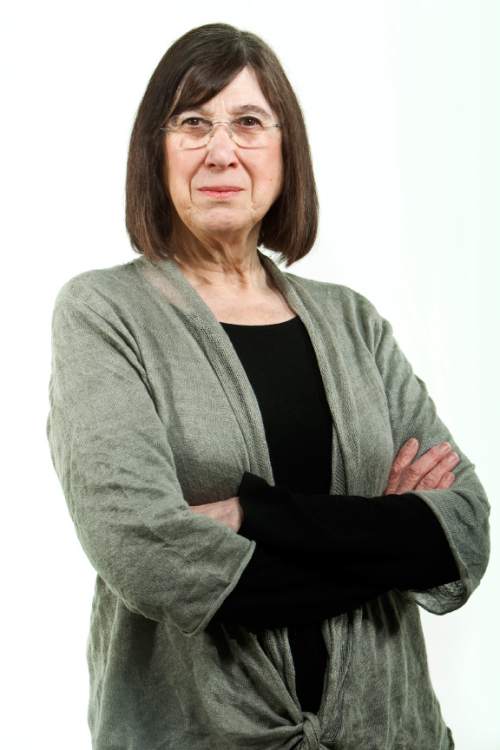This is an archived article that was published on sltrib.com in 2015, and information in the article may be outdated. It is provided only for personal research purposes and may not be reprinted.
First of two parts
In 1928, Liesel Shineberg, was born in her family's ancestral home of Aachen, Germany. Located near the borders of Belgium and Holland, Aachen is known for mineral springs, spas, medieval architecture and Charlemagne's imperial Palatine Chapel. For years, Aachen Jews led productive lives as German citizens. During World War I, many served in the German army. When the Nazis came to power in 1933, the city became one of disbelief for its Jewish residents — and 5-year-old Leisel's "world began to change."
Shineberg , née Stern, was born to a "life of privilege, comfort and happiness," the 86-year-old Ogden resident wrote in her unpublished memoirs. Her father, Max Stern, owned a textile factory. Although his wife Anna died during the 1928-influenza epidemic shortly after giving birth, Stern's second wife, Minna, was a devoted mother to Leisel and her older sister, Lotte. The Sterns lived in a fashionable household that included Erna and Adele, their cook and nursemaid. They thrived in extended familial camaraderie and emphasized courtesy and correctness coupled with exercise, healthy foods and fresh air.
In March 1933, the Third Reich established the notorious concentration camp at Dachau. On April 1, Nazi Storm Troopers stood in front of Jewish-owned stores and offices carrying signs warning Germans to "not buy from Jews."
In Aachen, day-to-day activities were mostly undisturbed. But eventually, striving to maintain normalcy for their children, the Sterns couldn't postpone fate.
"In an effort to raise money for his army, Hitler instituted Eintopfsonntag, which translates to one-pot cooking on Sundays," Shineberg wrote. "The money saved from making one meal was collected. In Jewish homes, the 'donation' was doubled."
Then, abruptly, Adele and Erna left. "They were with us for all of my conscious childhood memory, but the government announced to protect young women from 'lascivious' Jewish male employers, Jews could only hire maids over the age of 50, " Shineberg wrote. "We were saddened by these events, kept in touch, and when each one married, my father gave them lovely weddings for their loyal service."
Liesel attended kindergarten at a Montessori School. She was then enrolled in a Jewish primary school where she was often called upon to read by visiting government officials investigating Jewish schools for subversive teaching.
"They would hand me a book with marked pages with lines about 'bad Jews,'" she wrote. "It was frightening, I was afraid to make errors, and when the strangers left, I would have to hurry to the bathroom."
In 1938, 10-year-old Shineberg and two other Jewish students entered the fifth grade at the public Victoria School. The teachers wore brown uniforms banded with Nazi emblems. The Jewish students, seated in the back row, quickly learned what to expect.
"It happened daily," Shineberg recalled. "The door would open, a teacher would step inside and shout 'Out!' at us and we'd leave. The door would close. We could hear the class saying, 'Heil Hitler.' Then the door would open and we'd return to our seats. If we were tripped, we apologized for being in the way."
In November 1938, violent pogroms against Jews called Kristallnacht, or Night of Broken Glass, raged through Germany, annexed Austria and parts of Czechoslovakia. Dozens of Jews were killed, and more than 30,000 arrested. Some 250 synagogues were torched and several thousand businesses destroyed. Jewish cemeteries, homes and schools were vandalized. The death knell had sounded. No one was safe. Not even in the isolated city of Aachen.
Liesel was late to class and racing up the metal stairs two at a time when she ran into a teacher.
"I whispered, 'I'm sorry. I didn't mean to.' He grabbed me by one arm and slapped me so hard across the face I fell backward down the stairwell. I heard heavy boots clatter and tried to get up. He struck me hard again, and [ordered me] home immediately."
Leisel left, tears checked, understanding there was no going back.
Eileen Hallet Stone is the author of "Hidden History of Utah," a compilation of her Salt Lake Tribune columns. She may be reached at ehswriter@aol.com.



